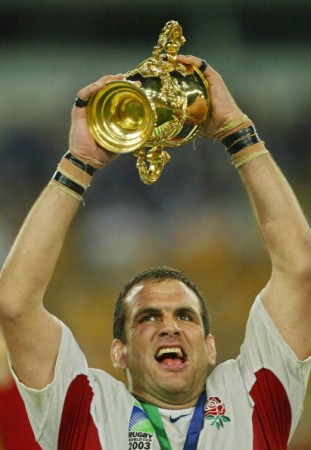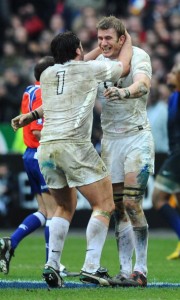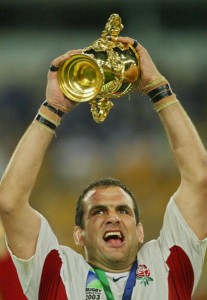By Sarah Mockford, Rugby World Features Editor
I WENT to Stuart Lancaster’s Six Nations debrief last week. He had put together an impressive presentation, complete with PowerPoint display, but what really stood out were the words of Graham Rowntree, his assistant coach.
Given that the England coaching appointment was still up in the air at the time, Rowntree could have been forgiven for looking after his own interests and making sure that he appeased whoever became his new boss. Instead he was effusive in his praise of Lancaster, talking about how the Yorkshireman had “dragged us out of the gutter” following England’s disappointing World Cup campaign and why the England camp during the Six Nations was the best environment he had ever been part of.
It was a ringing endorsement for Lancaster to be given the England coaching role on a full-time basis and the RFU clearly agreed, ending months of speculation by appointing him. So is he the right man for the job?
Well, he’s clearly got the backing of his players and coaching staff, but most importantly he has created a strong culture in the squad. Culture might seem like a namby-pamby word to be used in a rugby context, but having everybody buying into ideas and standards of behaviour is key to developing a winning team – a few bad eggs can ruin an omelette.
Lancaster has made it clear that off-field misdemeanours won’t be tolerated and has picked a squad that can produce winning performances right now and develop into World Cup contenders by 2015 – at least that’s what the RFU are hoping. For the first time in a long time planning for the future seems to be a priority for England, blooding young players now so they have plenty of experience under their belts come RWC 2015 instead of picking a side to win the next game.
A key advantage Lancaster has compared to the outsiders bidding for the coaching job is his knowledge of players in England, knowledge he has gained from his years of working with England’s age-group and Saxons sides. In his briefing last week he put up a slide listing the strength in depth England had in various positions – some of the names wouldn’t have been recognised by many of the journalists in the room, let alone someone who hadn’t worked in the English system.
There are still lingering doubts about Lancaster. Although his lack of experience at Test level worries other people, it isn’t a particular concern to me – Sir Clive Woodward didn’t have any when he took over but he presided over England’s most successful years while Jake White had only worked in age-grade rugby before guiding South Africa to 2007’s World Cup win. However, I don’t think everything is as rosy in the England garden as many believe after the Six Nations.
Four wins out of five was more than anyone expected, but those first two wins over Scotland and Italy could easily have gone the other way and simply having a strong defence won’t cut it against the world’s best. Yes, performances improved and winning in Paris is no easy feat, but there was no greater insight into England’s attacking game at the end of the championship than there was at the start.
A lack of creativity is a key area that needs to be addressed – and quickly. A tour to South Africa is not a gentle affair and both the media and supporters will be as quick to criticise the coach as they have been to praise him thus far if England take a hammering by the Boks.
So the first big test of Lancaster’s credentials is who he appoints as his coaching team. Rowntree is clearly going to stay put but can Andy Farrell be persuaded to leave Saracens and work full-time with England? And if that’s the forwards and defence sorted, who’s going to look after the attack? This is the void England need to fill. Wayne Smith is a prime contender if he can be persuaded to leave New Zealand and his role with the Chiefs, or will Lancaster look to English coaches, people like Mike Catt at London Irish or Clermont Auvergne’s Alex King?
These decisions could define how successful a reign Lancaster enjoys. Getting the job full time may have seemed like a big hurdle, but the hard work is only just beginning for England’s new coach.








